-
단독 경찰, 김병기 아파트 CCTV 확보 시도…’같은 라인’ 구의원 조사?재생

- "탈당은 사형선고" 버티는 김병기…당심은 ’싸늘’
- 손잡은 장동혁-이준석…’특검 연대’ 공동전선 본격화
- ’1억 의혹’ 강선우 통신영장…김경 조만간 재소환
-
특검, 윤석열에 사형 구형…"전두환보다 엄정히 단죄해야"재생
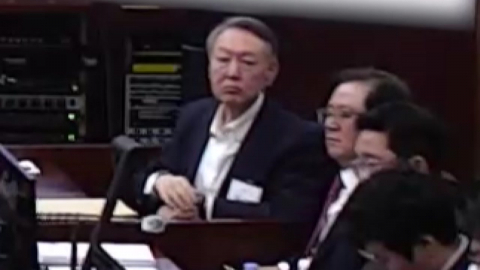
- [속보] 내란 특검, 윤석열 전 대통령에 사형 구형
- ’작전 성공’ 자화자찬하더니…’침대 재판’도 특검 탓
- 민주 "윤석열에 사형 구형해야"…말 아끼는 국민의힘
-
다카이치 "한일·한미일 전략적 협력 중요"…대중 견제 포석?재생
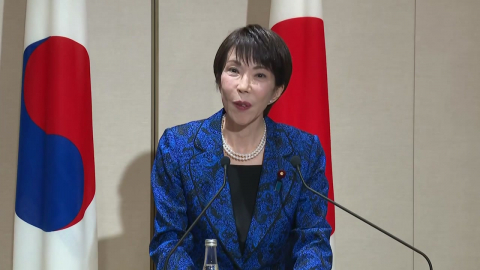
-
다카이치 총리는 이 대통령과의 정상회담에서 한일, 한미일의 전략적 협력의 중요성에 공감대를 이뤘다고 강조했습니다. 또 경제, 안보 분야에서의 공급망을 위한 협력도 이어가기로 했는데, 중국의 일본에 대한 전방위적인 압박에 대응하기 위한 포석으로 읽힙니다. 도쿄에서 김세호 특파원의 보도입니다. [기자] 자신의 고향이자 정치적 본거지인 나라현에서 이 대통령을 맞은 다카이치 총리. 일본 총리가 자신의 고향에서 해외 정상을 초청하는 것은 이례적인 일인데, 그만큼 이 대통령에게 신뢰를 보인 것으로 읽힙니다. [다카이치 사나에 / 일본 총리 : 제가 총리 취임 후 나라에 해외 정상을 초청한 것은 이 대통령이 처음으로, 저와 이 대통령 사이의 신뢰와 우정을 표시하는 것입니다.] 다카이치 총리는 정상회담 후 기자회견에서 엄중한 안보 환경을 거론하며, 한일, 한미일 협력의 중요성을 강조했습니다. 최근 타이완 해협을 둘러싸고 악화일로에 있는 중일 관계 속에 중국의 전방위적 압박을 염두에 둔 것으로 보입니다. 특히 경제·안보 분야에서는 일본 언론들이 예상한 대로 이 대통령과 공급망 협력을 논의했다고 설명했습니다. [다카이치 사나에 / 일본 총리 : 상호 이익을 가져다주는 협력을 이어가기 위해, 관계 부서 간 논의를 진행하기로 뜻을 맞췄고, 이 대통령과는 공급망 협력에 대해 심도 있는 논의를 진행했습니다.] 첨예해지는 중일 갈등 속에 일본에 대한 중국의 수출 통제에 대응하기 위해 한국과의 협력이 어느 때보다 필요하다는 점을 강조한 것으로 풀이됩니다. 일본 정부는 중국의 대일 견제 협력 요구에 이 대통령이 중립적인 자세를 유지하는 것에 일단은 안도하는 분위기입니다. 다카이치 총리는 이번 한일 정상회담을 통해 한국과의 우호 관계를 국제사회에 과시함과 동시에 국내 정치에서도 정부 여당에 유리한 여론을 형성하려 할 것으로 보입니다. 도쿄에서 YTN 김세호입니다. ※ '당신의 제보가 뉴스가 됩니다' [카카오톡] YTN 검색해 채널 추가 [전화] 02-398-8585 [메일] social@ytn.co.kr
실시간 이슈
에디터 추천뉴스
-
재생
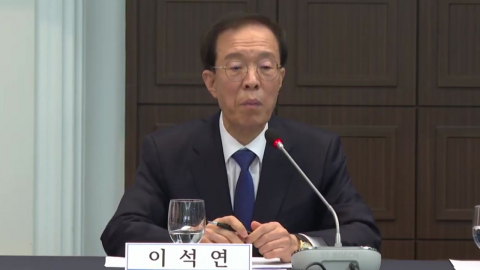 이석연 "이혜훈, 잘못된 인선"…청문회·특검으로 ’정국 안갯속’
이석연 "이혜훈, 잘못된 인선"…청문회·특검으로 ’정국 안갯속’ -
재생
 버스 파업에 퇴근길 직장인 가득…이 시각 신도림역
버스 파업에 퇴근길 직장인 가득…이 시각 신도림역 -
재생
![[날씨] 한낮에도 체감 -10℃…"내일 아침 더 춥다"](https://image.ytn.co.kr/general/jpg/2026/0113/202601131805037348_h.jpg) [날씨] 한낮에도 체감 -10℃…"내일 아침 더 춥다"
[날씨] 한낮에도 체감 -10℃…"내일 아침 더 춥다" -
재생
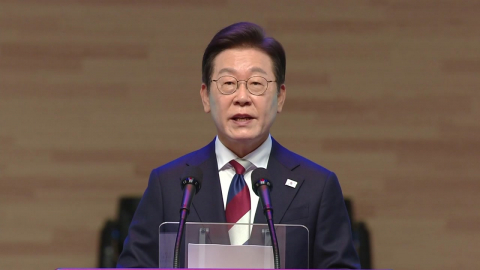 9·19 군사합의 복원 가시화?…"다양한 방안 검토"
9·19 군사합의 복원 가시화?…"다양한 방안 검토" -
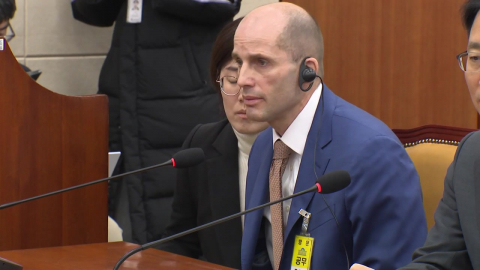 ’출석 불응’ 로저스 쿠팡 한국법인 대표, 해외 출국
’출석 불응’ 로저스 쿠팡 한국법인 대표, 해외 출국 -
이혜훈 청문회 19일 열기로…피해 보좌진은 증인서 빠져
-
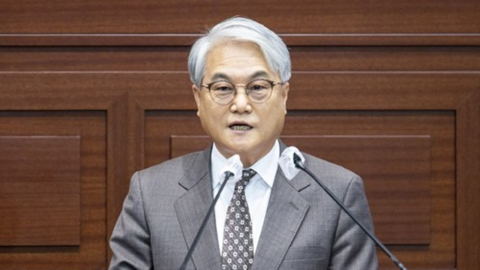 "미친X, 주둥아리…" 경북 청도군수, 요양원 직원 모욕 '피소'
"미친X, 주둥아리…" 경북 청도군수, 요양원 직원 모욕 '피소' -
재생
 ’홈플러스 사태’ MBK 김병주 구속 기로…’묵묵부답’
’홈플러스 사태’ MBK 김병주 구속 기로…’묵묵부답’ -
 ’비계 삼겹살’ 논란 막는다…삼겹살, 앞삼겹·뒷삼겹·돈차돌로 구분
’비계 삼겹살’ 논란 막는다…삼겹살, 앞삼겹·뒷삼겹·돈차돌로 구분 -
재생
 ’무면허 운전 방조’ 전동킥보드 업체 첫 송치…처벌은 ’미약’
’무면허 운전 방조’ 전동킥보드 업체 첫 송치…처벌은 ’미약’ -
재생
 "갱년기 영양제라며?"…루바브 일반식품 기능성분 ’제로’
"갱년기 영양제라며?"…루바브 일반식품 기능성분 ’제로’ -
 ’그린란드 51번째 주 편입’ 법안 미 하원에서 발의
’그린란드 51번째 주 편입’ 법안 미 하원에서 발의
많이 본 뉴스
- 1 [속보] 내란 특검, 윤석열 전 대통령에 사형 구형
- 2 [속보] 내란 특검, 윤석열 전 대통령에 사형 구형
- 3 "6시간 근무, 월 180만 원"...국세청, 체납관리 요원 대거 채용
- 4 "李 아들들 군 면제" 글 썼던 이수정...벌금 5백만원 구형
- 5 [속보] ’파업 돌입’ 서울 시내버스 노사 내일 협상 재개
- 6 검찰개혁 자문위원 줄사퇴...중수청·공소청법 후폭풍
- 7 공군기지 불법촬영 중국인들 측 "철없는 아이들에 관용 부탁"
- 8 [속보] 특검, 양형 사유 진술 시작...잠시 뒤 구형 예정
- 9 "뒤통수에 근접 저격...이란 시위, 6천 명 넘게 숨져"
- 10 특검, 윤석열에 사형 구형..."전두환보다 엄정히 단죄해야"



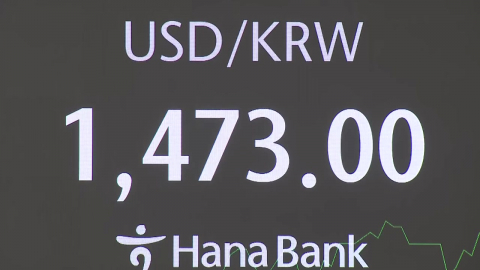





![[Y터뷰] "늘 낭떠러지에 선 기분"…50대 '언더독' 권상우의 목표](https://image.ytn.co.kr/general/jpg/2026/0113/202601131620584468_h.jpg)
![[Y현장] 설레는 케미, 아름다운 영상미…김선호·고윤정의 만남 '이사통'(종합)](https://image.ytn.co.kr/general/jpg/2026/0113/202601131227351419_h.jpg)





